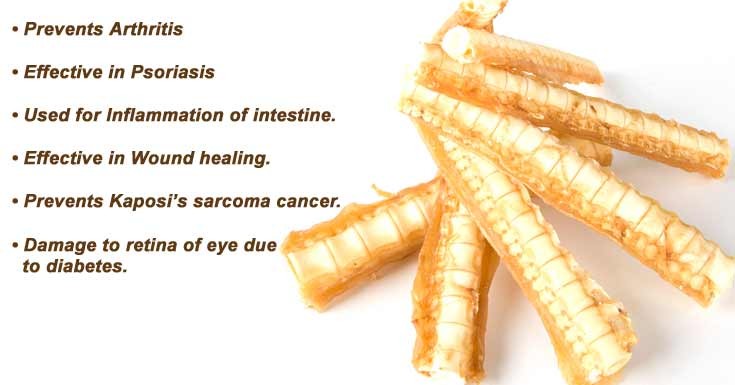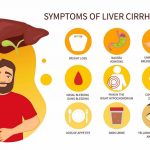
Shark Cartilage: A Brief Overview
Cartilage, a tough and flexible tissue found in various organs of the human body, including joints, ribs, windpipe, ears, and nose, also exists in sharks. Shark cartilage, the skeletal tissue of sharks, is often dried and powdered for medicinal purposes. Although some people take shark cartilage powder or capsules to treat conditions such as cancer, arthritis, psoriasis, diabetic retinopathy, intestinal inflammation, and wound healing, there is no scientific evidence supporting these claims.
Shark cartilage contains squalamine lactate, a substance believed to inhibit the growth of new blood vessels and deprive tumors of nutrients. It is also thought to reduce inflammation in psoriasis and prevent the breakdown of cartilage in bones by interfering with matrix metalloproteases, enzymes that degrade cartilage. However, studies have debunked the notion that sharks are immune to cancer, and consuming shark cartilage has shown no therapeutic benefits for cancer or any other ailment.
Important Warnings
- Avoid high doses or prolonged use of shark cartilage.
- Do not use if you are pregnant, breastfeeding, or under the age of 18.
- Consult your healthcare provider before taking any dietary supplement, including shark cartilage, especially if you have underlying health conditions or are on regular medication.
- If you experience side effects such as weakness, fatigue, dizziness, excessive thirst, or mood changes, seek medical help.
- Instances of hepatitis associated with shark cartilage use have been reported. Contact your physician if you observe symptoms such as yellowing of the skin or eyes, stomach pain, persistent nausea, or dark urine.
- Avoid shark cartilage if you have pre-existing high calcium levels, a tendency for kidney stones, or irregular heart rhythms.
- Exercise caution if you are diabetic and taking anti-diabetic medications, as shark cartilage may reduce blood glucose levels.
- Increased immune system activity due to shark cartilage may worsen symptoms of autoimmune diseases like rheumatoid arthritis, multiple sclerosis, and lupus erythematosus.
Side Effects of Shark Cartilage
Common side effects of shark cartilage may include nausea, vomiting, stomach upset, pain in the upper right abdomen, diarrhea, constipation, bad taste in the mouth, dark urine, yellowing of skin or whites of the eyes, itching, fatigue, weakness, low blood pressure (hypotension), dizziness, and high blood calcium levels with chronic use.
Seek immediate medical attention if you experience serious side effects, such as rapid or irregular heartbeats, shortness of breath, severe headache, confusion, slurred speech, severe weakness, vomiting, loss of coordination, very stiff muscles, high fever, sweating, tremors, visual disturbances, or eye pain.
This is not an exhaustive list of side effects or adverse reactions. Call your doctor for medical advice or report any side effects to the FDA at 1-800-FDA-1088.
Recommended Dosage of Shark Cartilage
There is limited scientific information regarding the appropriate dosage of shark cartilage. Follow the instructions provided by the manufacturer.
- Commercial products typically recommend oral doses ranging from 500 mg to 4.5 grams, divided into 2-6 doses per day.
Overdose
An overdose of shark cartilage may irritate the gastrointestinal system, leading to symptoms such as nausea, vomiting, diarrhea, and other digestive issues. Chronic overdose may elevate blood calcium levels and intensify immune system activity, potentially exacerbating autoimmune diseases. In the event of an overdose, seek medical assistance and receive symptomatic and supportive care.
Drug Interactions with Shark Cartilage
Inform your doctor about all current medications to check for potential drug interactions. Never alter the dosage of any medication without your doctor’s guidance.
- Shark cartilage has no severe or serious interactions with other drugs.
- Shark cartilage has moderate interactions with a variety of medications.
- Mild interactions are possible with bitter melon, calcium acetate, calcium carbonate, calcium chloride, calcium citrate, calcium gluconate, fenugreek, gymnema, interferon alfa 2b, fruit juices, leflunomide, and thalidomide.
Remember to inform your doctor, pharmacist, or healthcare provider about all prescription and over-the-counter medications you are using and their respective dosages. Keep a comprehensive list of this information. If you have any questions about your medication, consult your doctor or healthcare provider.
Pregnancy and Breastfeeding
Avoid using shark cartilage during pregnancy or breastfeeding due to the lack of reliable safety information.
Always seek medical advice before taking any dietary supplement if you are pregnant or breastfeeding.
Additional Considerations
- Scientific information regarding the safety and efficacy of shark cartilage is lacking.
- If you choose to use shark cartilage, adhere strictly to the label’s instructions. Although natural products may not always be safe, following recommended dosing is essential.
- Check the labels of shark cartilage products for their specific components, as dietary supplements often contain multiple ingredients.
- Shark cartilage products are marketed as dietary supplements and are not regulated by the FDA. Formulations and strengths may vary, and labeling may not accurately reflect content. Exercise caution when selecting a product and only purchase from reputable manufacturers.
- Keep shark cartilage products out of reach of children.
- In the case of an overdose, seek medical assistance or contact Poison Control.
Subscribe to MedicineNet’s Arthritis Newsletter
By clicking "Submit," I agree to the MedicineNet Terms and Conditions and Privacy Policy. I also understand that I may opt out of MedicineNet subscriptions at any time.
Summary
Shark cartilage, derived from certain Pacific shark species, is commonly used for medicinal purposes. While some people take shark cartilage powder or capsules to address various health concerns, including cancer, arthritis, psoriasis, diabetic retinopathy, intestinal inflammation, and wound healing, there is no scientific evidence supporting these uses. Common side effects may include digestive issues, fatigue, weakness, low blood pressure, and others. Pregnant and breastfeeding individuals should avoid shark cartilage. It is important to exercise caution, follow dosage instructions, and consider the components and reputable sources of shark cartilage products. If you experience any adverse reactions, consult a healthcare professional.


